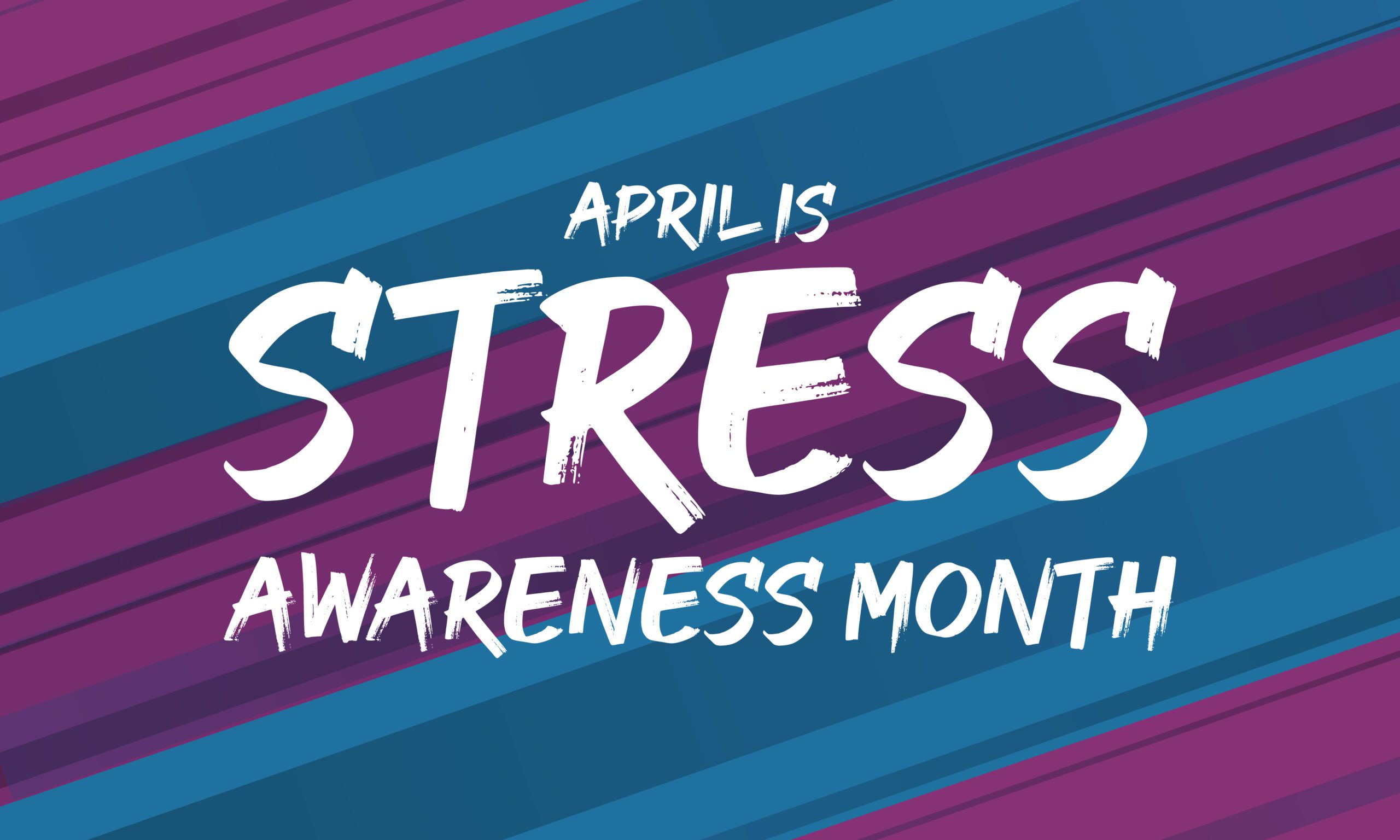National Stress Awareness Month has been observed since April 1992 to raise awareness of the causes and cures for our modern-day stress epidemic. It’s a timely reminder to pay attention to our stress levels and how they impact our health and well-being. Having a dedicated month for stress awareness allows opportunities for open conversation on the impact of stress in our daily lives.
In today’s fast-paced world, it’s easy to become overwhelmed by the demands of work, family, and other responsibilities. However, ignoring stress can lead to a variety of mental and physical health problems.
What is stress?
Stress is a natural response to the demands and pressures of everyday life, stemming from work, relationships, financial concerns, health issues, and more. While some stress can be motivating, chronic or intense stress can take a toll on our bodies and minds.
Chronic stress can contribute to conditions like anxiety and depression, and it can even manifest in physical symptoms such as headaches, fatigue, and muscle tension. Unchecked stress can lead to elevated blood pressure, digestive problems, and increase the risk of serious conditions like heart disease, diabetes, and obesity.
Why taking care of your mental health is important
Mental health is just as important as physical health. Good mental health can help you cope with the challenges of daily life, maintain healthy relationships, and achieve your goals. However, poor mental health can lead to a variety of problems, including anxiety, depression, substance abuse, and even suicide.
According to the World Health Organization (WHO), one in four people will be affected by mental or neurological disorders at some point.
Stress is one of the leading causes of poor mental health. When stressed, your body releases hormones like cortisol and adrenaline that trigger the “fight or flight” response. This response can be helpful in dangerous situations, but chronic stress can lead to a range of health problems, including anxiety, depression, insomnia, digestive issues and even more serious conditions.
Steps you can take to manage stress
If you’re feeling stressed, there are several steps you can take to manage it effectively. Here are some tips for managing stress:

1. Practice mindfulness
Mindfulness is the practice of paying attention to the present moment without judgment. It can help you become more aware of your thoughts and feelings, which can help you manage stress more effectively. There are many ways to practice mindfulness, including meditation, deep breathing, and yoga.
2. Exercise regularly
Exercise is a great way to relieve stress. It can help you release tension, boost your mood, and improve your overall health. Aim for at least 30 minutes of moderate exercise most days of the week.
3. Get enough sleep
Sleep is essential for good mental health. Lack of sleep can lead to irritability, poor concentration, and other problems that can make stress worse. Aim for seven to eight hours of sleep per night.
4. Eat a healthy diet
A healthy diet can help you manage stress by providing your body with the nutrients it needs to function properly. Aim to eat a balanced diet that includes plenty of fruits, vegetables, whole grains, and lean protein.
5. Connect with others
Social support is important for good mental health. Make time for friends and family, or consider joining a support group to connect with others who are going through similar experiences.
Check out former Surgeon General, Vivek H. Murthy’s Advisory report, Our Epidemic of Loneliness and Isolation at hhs.gov.
6. Practice self-care
Self-care is essential for managing stress. Take time for yourself to do things you enjoy, whether it’s reading a book, taking a bath, or going for a walk.
7. Seek professional help
If you’re feeling overwhelmed by stress, it’s important to seek professional help. A mental health professional can help you develop a personalized plan for managing stress and improving your mental health.
Final thoughts
Stress can have a significant impact on your mental health, but there are steps you can take to manage it effectively. By practicing mindfulness, exercising regularly, getting enough sleep, eating a healthy diet, connecting with others, practicing self-care, and seeking professional help when needed, you can take control of your mental health and live a happier, healthier life. Remember, taking care of your mental health is just as important as taking care of your physical health, so make your health a priority this Stress Awareness Month and beyond.
If you would like to discuss options for managing your stress, contact your healthcare provider or a qualified mental health specialist to help you achieve your health and wellness goals.
Additional information
A short blog from the Florida Association of Community Health Centers on paying attention to our stress levels can be accessed at fachc.org.
Check out the following resource from The American Institute on Stress entitled “How to Know Your Signs of Stress “The 7 Warning Signs of Stress” at stress.org.
By Mark Mahoney has been a Registered Dietitian/Nutritionist for almost 40 years and completed graduate studies in Public Health at Columbia University. He is also a graduate of this past year’s Tallahassee Active Lifelong Leaders class and can be reached at: [email protected].





